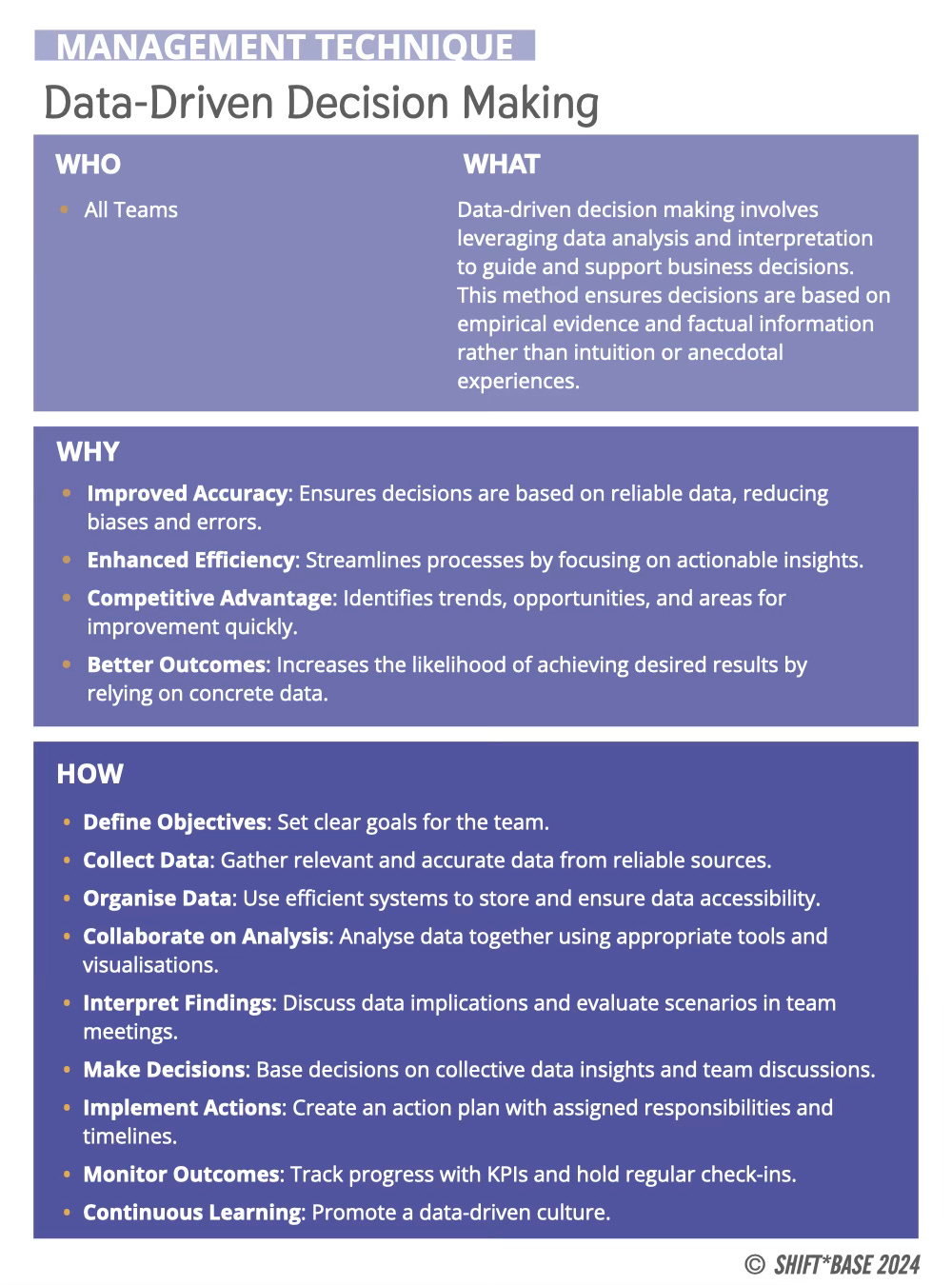Empowering Your Team with Data: The Key to Agile and Effective Decision Making
How can your organisation leverage data-driven decision making to stay ahead in a rapidly changing world? (Hint: it isn't all about the data...)
Data-driven decision making has long been a goal for leaders, and it is now becoming easier to achieve thanks to advances in AI.
According to a survey by NewVantage Partners, 98.6% of executives report that their organisations are striving to become more data-driven, but only 32.4% claim to have successfully achieved this objective. A study by McKinsey & Company also found that data-driven organisations are:
23x more likely to acquire customers
6x as likely to retain customers, and
19x more likely to be profitable
AI and machine learning can facilitate predictive analytics, automated decision making, and the optimisation of business processes by identifying patterns and trends that might be missed by human analysis, and by offering recommendations and automating routine decisions to enhance efficiency and effectiveness.
The ability to analyse vast amounts of data with AI and machine learning means companies will be able to predict customer behaviour, spot market trends before they happen, and streamline operations like never before. It’s about making smarter, faster, and more accurate decisions, turning insights into action, and action into results.
Building on these capabilities, data-driven decision making promises to enhance operational efficiency, competitive advantage, and overall performance, but it needs tight integration of data sources in close to real time to be really useful in many cases.
This guide will cover how to get the most out of data-driven decision making, and also how to prepare for it.
Key Principles of Data-Driven Decision Making
If a team or business unit is looking to harness data-driven decision making, where should it start? A good first step is to focus on some underlying principles that can help ensure decisions are based on accurate and reliable information, and to build trust among stakeholders, fostering an environment where insights are constantly refined and improved:
Data Quality and Integrity: Ensuring the accuracy, completeness, and reliability of data is fundamental. High-quality data serves as the foundation for sound decision making, helping to avoid errors and biases that can arise from flawed data.
Timeliness and Relevance: Data should be current and relevant to the decision at hand. Timely data ensures that decisions are based on the most recent information available, allowing organisations to respond swiftly to changing conditions.
Transparency and Accessibility: Data should be transparent and accessible to relevant stakeholders. Clear documentation and open data sharing practices enhance transparency, allowing team members to understand the data sources, methodologies, and assumptions behind decisions.
Contextual Understanding: Data should be interpreted within the context of the business environment and objectives. Understanding the broader context helps in making sense of the data, ensuring that decisions align with the organisation’s strategic goals.
Empowerment through Data Literacy: Building data literacy across the organisation empowers employees to effectively utilise data in their decision-making processes. Training and development programs should be implemented to enhance data literacy, enabling teams to analyse, interpret, and act on data confidently.
Ethical Considerations: Organisations must ensure that data collection, analysis, and utilisation adhere to ethical standards and regulations, protecting privacy and avoiding misuse.
Integration with Business Processes: Data should be seamlessly integrated into business processes. This involves embedding data analytics into everyday workflows, enabling data-driven insights to inform routine operations and strategic initiatives.
Actionable Insights: The ultimate goal of data-driven decision making is to derive actionable insights. Data analysis should translate into clear, actionable recommendations that drive business outcomes. Focusing on actionable insights helps in making decisions that are practical and impactful.
By adhering to these principles, organisations can harness the full potential of data-driven decision making, leading to more informed, strategic, and effective decisions.
But here’s the catch: data alone isn’t enough.
The real challenge is turning actionable insights into real change. Digital transformation, AI, and automation demand more than just analytics — they require a radical overhaul of how businesses operate. This means rethinking organisational structures, cultivating a culture of agility and innovation, and embracing new ways of working. We need visionary leadership that can marry data insights with strategic goals and collaborative decision making.




